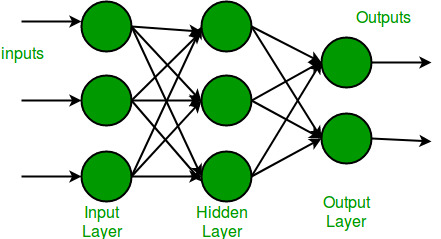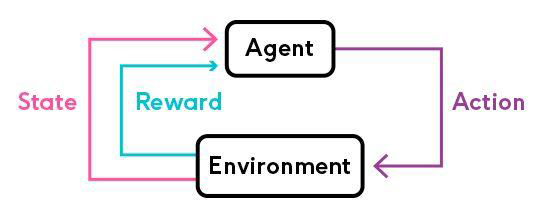
Nearly all industries are already affected by artificial intelligence. Artificial intelligence saves businesses money and reduces repetitive tasks. The integration of these technologies will have a profound impact on the future of education, healthcare, supply chain management, marketing, and more. While we cannot yet see the full implications of artificial Intelligence, we can speculate as to how it will affect our jobs.
Retail and e-commerce
Artificial intelligence (AI), which is a form of artificial intelligence, is expected to make a big impact on the retail industry and e-commerce. It is anticipated that 85% will be automated by 2020. AI will provide a faster and more efficient means of responding to customer needs. This technology will allow stores to understand the needs of customers and stock products more efficiently.
AI has already been implemented in e-commerce and retail businesses to improve customer service. In 2018, 28% businesses in this sector implemented AI and machine learning. This is a 600% increase from just one year ago. AI is helping retail companies streamline their processes, identify customers, and create customized offers based upon data. It can even provide information about product availability and order status.

Financial services
Artificial intelligence is an effective tool that can greatly increase efficiency in finance. It can identify patterns and make better decisions by learning from data. It can also reduce biases caused by emotion and human errors. It can identify anomalies and long-term trends, which can help improve the quality of management information. AI applications are also useful in helping banks to deal with new regulations, which increase the responsibilities for senior management.
Traditional financial institutions are facing increasing challenges in order to preserve their market shares, maximize shareholder value and maintain control over the rising number of AI-enabled applications. These financial institutions will have more options than ever to improve their services or business models, as AI advances. Autonomous Next forecasts that AI investments can save $1.0 billion by 2030, according to its 2018 Machine Intelligence forecast.
Healthcare
Artificial intelligence has a wide range of applications in healthcare, from improving diagnosis to predicting diseases. Deep learning algorithms are being used in hospitals to scan medical records for common conditions such as schizophrenia, liver cancer, and other disorders. AI is also helping clinicians adopt a holistic approach to managing diseases by coordinating and facilitating long-term treatments.
Artificial intelligence allows healthcare providers to make better decisions, and reduce costs. It automates crucial processes like claims processing and patient assessments. It can also be used to help hospitals accept more plans. This is good news for patients. AI can also help healthcare institutions save time and increase productivity. We all know that time is money.

Transport
The Transportation industry is among the sectors that could be impacted most by artificial intelligence. It is a global market with cargo ships transporting goods throughout the world. Industry leaders are looking for ways to reduce costs and increase efficiency by using AI. These are just some examples of how artificial intelligence can help transport systems.
Autonomous vehicle is one of the most significant applications of AI. Autonomous vehicles were once considered science fiction. However, they have been successfully introduced to the market with various degrees of success.
FAQ
What is the most recent AI invention?
Deep Learning is the newest AI invention. Deep learning (a type of machine-learning) is an artificial intelligence technique that uses neural network to perform tasks such image recognition, speech recognition, translation and natural language processing. Google created it in 2012.
The most recent example of deep learning was when Google used it to create a computer program capable of writing its own code. This was achieved by a neural network called Google Brain, which was trained using large amounts of data obtained from YouTube videos.
This allowed the system to learn how to write programs for itself.
In 2015, IBM announced that they had created a computer program capable of creating music. Also, neural networks can be used to create music. These are known as "neural networks for music" or NN-FM.
Which AI technology do you believe will impact your job?
AI will eliminate certain jobs. This includes drivers, taxi drivers as well as cashiers and workers in fast food restaurants.
AI will create new employment. This includes jobs like data scientists, business analysts, project managers, product designers, and marketing specialists.
AI will make current jobs easier. This applies to accountants, lawyers and doctors as well as teachers, nurses, engineers, and teachers.
AI will make it easier to do the same job. This includes agents and sales reps, as well customer support representatives and call center agents.
AI is useful for what?
Artificial intelligence refers to computer science which deals with the simulation intelligent behavior for practical purposes such as robotics, natural-language processing, game play, and so forth.
AI can also be called machine learning. This refers to the study of machines learning without having to program them.
AI is often used for the following reasons:
-
To make our lives simpler.
-
To be better at what we do than we can do it ourselves.
Self-driving car is an example of this. AI can replace the need for a driver.
Are there risks associated with AI use?
It is. They always will. AI could pose a serious threat to society in general, according experts. Others argue that AI is necessary and beneficial to improve the quality life.
AI's misuse potential is the greatest concern. The potential for AI to become too powerful could result in dangerous outcomes. This includes things like autonomous weapons and robot overlords.
AI could also replace jobs. Many people worry that robots may replace workers. But others think that artificial intelligence could free up workers to focus on other aspects of their job.
For instance, economists have predicted that automation could increase productivity as well as reduce unemployment.
Statistics
- By using BrainBox AI, commercial buildings can reduce total energy costs by 25% and improves occupant comfort by 60%. (analyticsinsight.net)
- According to the company's website, more than 800 financial firms use AlphaSense, including some Fortune 500 corporations. (builtin.com)
- The company's AI team trained an image recognition model to 85 percent accuracy using billions of public Instagram photos tagged with hashtags. (builtin.com)
- In the first half of 2017, the company discovered and banned 300,000 terrorist-linked accounts, 95 percent of which were found by non-human, artificially intelligent machines. (builtin.com)
- In 2019, AI adoption among large companies increased by 47% compared to 2018, according to the latest Artificial IntelligenceIndex report. (marsner.com)
External Links
How To
How to setup Alexa to talk when charging
Alexa, Amazon's virtual assistant, can answer questions, provide information, play music, control smart-home devices, and more. It can even speak to you at night without you ever needing to take out your phone.
Alexa allows you to ask any question. Simply say "Alexa", followed with a question. With simple spoken responses, Alexa will reply in real-time. Alexa will improve and learn over time. You can ask Alexa questions and receive new answers everytime.
You can also control lights, thermostats or locks from other connected devices.
Alexa can also adjust the temperature, turn the lights off, adjust the thermostat, check the score, order a meal, or play your favorite songs.
Setting up Alexa to Talk While Charging
-
Open Alexa App. Tap Settings.
-
Tap Advanced settings.
-
Select Speech recognition.
-
Select Yes, always listen.
-
Select Yes, please only use the wake word
-
Select Yes, then use a mic.
-
Select No, do not use a mic.
-
Step 2. Set Up Your Voice Profile.
-
You can choose a name to represent your voice and then add a description.
-
Step 3. Step 3.
Followed by a command, say "Alexa".
You can use this example to show your appreciation: "Alexa! Good morning!"
Alexa will reply to your request if you understand it. For example, "Good morning John Smith."
Alexa won't respond if she doesn't understand what you're asking.
After making these changes, restart the device if needed.
Note: If you change the speech recognition language, you may need to restart the device again.